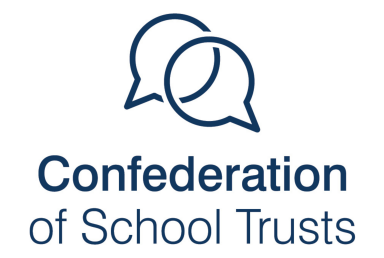Are you a trustee looking to work on your professional development?

 CPD is a priority for executive leaders but it’s sometimes overlooked for trustees and other volunteers, according to Jackie Eason who runs the Confederation of School Trusts (CST) Chairs Development Programme.
CPD is a priority for executive leaders but it’s sometimes overlooked for trustees and other volunteers, according to Jackie Eason who runs the Confederation of School Trusts (CST) Chairs Development Programme.
She says some people end up in the chair role because, ‘they didn’t duck their head fast enough,’ and that’s a situation we’d never expect to find with the role of headteacher.
Jackie explains why training matters, and how the CST programme is designed to build knowledge and confidence amongst trustees, and how it supports succession planning.
Jackie, firstly tell us a bit about your background in governance?
I’ve been involved in governance for 23 years as a governor, chair of governors, chair of trustees, and most recently as a specialist ‘troubleshooting’ chair to support trusts in need.
I’ve also worked with local authorities, dioceses, the Department of Education, and more recently with regional trust teams. I absolutely love working in governance and supporting chairs. They can have an incredibly positive impact on education for pupils, because they're building the team on their board, but when things aren't going well they need a lot of support and it's great to contribute to that.
Who is the CST Chairs Development course aimed at?
The course has been designed for all types of trust chairs, whether you're new in post, a vice chair or an aspiring chair. Maybe your trust has had the same chair for 5-6 years and it’s now time to consider succession planning. It could also be helpful for chairs of committees who’re already involved in leadership to a smaller degree within a committee to the trust board.
I feel that I have increased confidence in my role as chair, following this course, and so will have the confidence to lead the board actively.
What should people expect from the programme?
It’s fully online and organised into seven, 90-minute seminars. At the start of every session I put the participants into a breakout room together so they can talk about what they’ve learnt the previous week and bond as a group. We then give them important information about a specific area of their chair's role.
In each session we have a guest speaker, who provides an expert or alternative view, and we usually have two more breakout sessions again to allow participants to discuss what they’ve learnt and contextualise it within their own setting.
At the end of the seminar I tend to leave a little bit of reflection time too, so participants can think about what they're going to take away and implement.
Are there any other practical elements participants can expect from the course?
We provide participants with a pre-reading list, however I should stress that this is not compulsory, but it's there for additional support and for those who like to come prepared.
We do a seminar on setting risk appetite and board assurance so we provide them with some background reading on what strategic risk management looks like. We also provide a post seminar support sheet, which gives a summary of the learning points and also some tasks to go away and consider within their own trust.
Tell us about the external speakers you have on the course
We have a great array of speakers - for our autumn course we've got a trust regional director attending the first seminar. This kind of person can’t do their role without a good relationship with the trust board. Last year, she came and shared what she values in a strong trust board chair and how they can have an impact on the education structure of the entire country.
We have subject specialists from Browne Jacobson (a law firm) and RSM (an audit, tax and consulting firm) who provide specific knowledge on risk management and strategic leadership. Plus, a Chief Operating Officer from a trust talks about what ‘being governed’ feels like from the executive side, the positives of trust governance and some of the barriers to improving trust governance.
Then we also hear from people currently in the role, so we have experienced current chairs, and also fairly new chairs who can talk about what their first year was like. We've tried to get a really broad array of speakers.
How well does the networking side of things go?
Well, by the end of the 7 weeks participants have been in so many breakout rooms that they know each other really well. I know some of them from previous cohorts are still in contact and have formed a really important peer support group.
I also set up a WhatsApp group, so that in the weeks that the course is running participants can contact each other with little questions, learnings or reminders. I think that inspires and keeps the momentum going throughout the 7 weeks.
What level of experience do most participants have?
So, the level of experience and size of trust they chair has been really vast. We’ve had experienced chairs of trusts with maybe just two or three schools, and at the other end of the spectrum we’ve had new chairs in a trust of 20 schools.
The sharing of personal experience is a really exciting part of it too. Whatever your level of experience, everyone's got something to give, and the participants tend to be very generous in sharing their knowledge and skills with each other.
Have you learnt anything whilst running these sessions - anything that surprised you?
I‘ve learnt to be really careful not to overwhelm people, and to make it clear that in the seminars we’re providing high-level, best-case scenarios and even-better-ifs. We’ve tried to embed within the course an awful lot of kindness and understanding and say to people where necessary, “what you’re doing is good enough.”
But what we often notice at the start of the course is that existing chairs are doing too much, so in the first session we explain that chairs have one role and that's to create a team who can do the governance. Chairs shouldn't actually be doing any of the governance themselves. They should be making sure that they've got the right team in place, that people understand what their roles and responsibilities are and that they understand the strengths and weaknesses of their schools. You're a team builder, a communication conduit, and a relationship builder. And that's a whole different set of skills.
Sharp, thought provoking training delivered by a highly skilled and experienced team.
What one thing do you want participants to really take away from the programme?
A number of chairs say they have imposter syndrome and this programme should give all participants confidence, a reminder that they’re not alone and also the skills to make a plan and achieve what they can within a realistic time period.
In the first seminar, everyone sets themselves targets for what they want to achieve during the course, targets for the end of their first year as chair, and a plan for when they might eventually move on from being chair.
Jackie, is there anything else you'd like to add?
I do an awful lot of external reviews of governance and so many of us talk about our organisations being learning organisations and how we really invest in the professional development for our executive leaders and our teachers and our newly qualified teachers.
I think we need to get better as trustees in investing in our own professional development. So few people are thinking about succession planning and supporting those who aspire to become a chair.
Connect with Jackie on LinkedIn or email: [email protected]






Post your comment
Comments
vinod patel 3 Oct 2023, 14:36 (7 months ago)
I have recently retired from the commercial world and welcome an oppoprtunity to grow my board experience in the public sector.
No one has commented on this page yet.
RSS feed for comments on this page | RSS feed for all comments